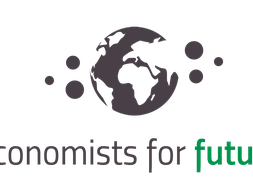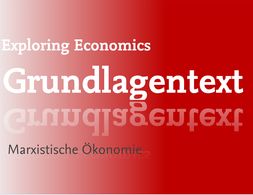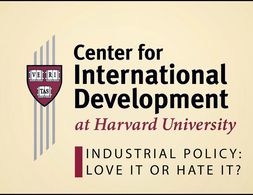347 Ergebnisse
MERCOSUR (Mercado Común del Sur or Common Southern Market) was the first formalized attempt to integrate South American countries economically and politically.
In this essay the authors argue for a wider concept of care work that includes community building, civic engagement and environmental activism. On the basis of the case of Cargonomia, a grassroot initiative in Budapest, they show that such a wider concept of care work could allow for different narratives that promote sustainable lifestyles with a milder environmental and social impact on the planet and its communities.
Die Disziplin der Wirtschaftswissenschaften nutzt im Bereich der Verhaltensökonomik häufig experimentelle Spiele, um das menschliche Verhalten zu untersuchen, wie z.B. das Diktatorspiel. Mithilfe postkolonialer Analysemethoden untersucht dieser Essay am Beispiel eines bekannten Aufsatzes der Verhaltensökonomik von Henrich et al. 2001 zu indigenen Gemeinschaften, wie Wissen über menschliches Verhalten in wirtschaftlichen Kontexten konstruiert und kategorisiert wird.
An essay of the writing workshop on contemporary issues in the field of Nigerian economics: The adverse effect of climate change is overwhelming, not just in Nigeria but globally. Global warming is the result of hostile human activities that have impacted the environment negatively. This is the principal variable the government should tackle through practical innovations such as the acceptable implementation of Adaptation Policies and also through the adequate implementation of environmental tax. These will enhance pro-environmental behaviour which is fit for socio-political and economic activities for sustainability.
Gemäß der „vorsorgeorientierten Postwachstumsposition“ ist es ungewiss, wie sich die Wirtschaftsleistung entwickeln wird, wenn die Wirtschaftsweise in den wohlhabenden Ländern im Einklang mit globalen ökologischen Zielen grundlegend verändert wird. Andererseits spielen aufgrund der heutigen Verfasstheit der früh industrialisierten, wohlhabenden Länder die Wirtschaftsleistung und die damit generierten Einkommen eine wichtige Rolle. Daraus lässt sich das Ziel ableiten, diese gesellschaftlichen Institutionen nach Möglichkeit vorsorglich so zu transformieren, dass sie ihre Funktionen unabhängig(er) von der Wirtschaftsleistung erbringen können. Dies würde der Politik auch größere Spielräume bei Konflikten zwischen ökonomischen und ökologischen Zielen ermöglichen.
The Great Recession 2.0 is unfolding before our very eyes. It is still in its early phase. But dynamics have been set in motion that are not easily stopped, or even slowed. If the virus effect were resolved by early summer—as some politicians wishfully believe—the economic dynamics set in motion would still continue. The US and global economies have been seriously ‘wounded’ and will not recover easily or soon. Those who believe it will be a ‘V-shape’ recovery are deluding themselves. Economists among them should know better but are among the most confused. They only need to look at historical parallels to convince themselves otherwise.
Environmental catastrophe looms large over politics: from the young person’s climate march to Alexandria Ocasio-Cortez’s Green New Deal, increasing amounts of political space are devoted to the issue. Central to this debate is the question of whether economic growth inevitably leads to environmental issues such as depleted finite resources and increased waste, disruption of natural cycles and ecosystems, and of course climate change. Growth is the focal point of the de-growth and zero-growth movements who charge that despite efficiency gains, increased GDP always results in increased use of energy and emissions. On the other side of the debate, advocates of continued growth (largely mainstream economists) believe that technological progress and policies can ‘decouple’ growth from emissions.
The global financial crisis (GFC) led to increasing distrust in economic research and the economics profession, in the process of which the current state of economics and economic education in particular were heavily criticized. Against this background we conducted a study with undergraduate students of economics in order to capture their view of economic education.
This course introduces students to the relevance of gender relations in economics as a discipline and in economic processes and outcomes. The course covers three main components of gender in economics and the economy: (1) the gendered nature of the construction and reproduction of economic theory and thought; (2) the relevance and role of gender in economic decision-making; and (3) differences in economic outcomes based on gender. We wil touch on the relevance of gender and gender relations in at least each of the following topics: economic theory; the history of economic thought; human capital accumulation; labor market discrimination; macroeconomic policy, including gender budgeting; household economics; basic econometrics; and economic crises.
On July 2020 ZOE-Institute published a unique platform for transformative policymaking: Sustainable Prosperity. Building on insights from new economic thinking the platform provides knowledge about ideas, arguments and procedures that support effective promotion of political change. It aims to strengthen change makers in public policy institutions, who are working on an ambitious green and just transition. As such, it provides convincing arguments and policy ideas to overcome the reliance of economic policy on GDP growth
Stratification economics is defined as a systemic and empirically grounded approach to addressing intergroup inequality. Stratification economics integrates economics, sociology and social psychology to distinctively analyze inequality across groups that are socially differentiated, be it by race, ethnicity, gender, caste, sexuality, religion or any other social differentiation.
Happy International Women s Day This International Women s Day 2018 is an opportune moment to highlight prominent scholars of Feminist Economics As a subdiscipline of economics Feminist Economics analyzes the interrelationship between gender and the economy often critiquing inequities and injustices perpetuated by mainstream paradigms Work of this nature …
"Why information grows" by Cesar Hidalgo and the atlas of economic complexity. César visits the RSA to present a new view of the relationship between the individual and collective knowledge, linking information theory, economics and biology...
What’s inflation? Why is it relevant? And is there an agreed theory about its roots and causes, or is it a contentious concept? That’s what this text is all about: We define what inflation actually means before we delve into the theoretical debate with an interdisciplinary and pluralist approach: What gives rise to it, what factors might influence it, and, consequently, what might be done about it?
Die marxistische Ökonomie stellt eine Wirtschaftstheorie dar, die im Wesentlichen auf Karl Marx Hauptwerk „Das Kapital“ beruht. Aufbauend auf den Ansätzen der klassischen Nationalökonomie werden hierbei die kapitalistischen Produktionsweisen sowie der Grundwiderspruch zwischen Kapital und Arbeit analysiert und kritisiert (vgl. Kirchgässner 1988, S. 128). Ausgehend von der marxistischen Kapitalismuskritik werden insbesondere das Wesen der kapitalistischen Ausbeutung und der Klassenkonflikt zwischen Bourgeoisie und Proletariat behandelt (vgl. Utz 1982, S. 22-23).
Ricardo Hausmann says the new industrial policy is an information revelation process about the state of possibilities, the nature of the obstacles and figuring out whether you can sort out the obstacles so that these new activities can take over.
How can we shape urban development towards sustainable and prosperous futures This course will explore sustainable cities as engines for greening the economy We place cities in the context of sustainable urban transformation and climate change Sustainable urban transformation refers to structural transformation processes multi dimensional and radical change that …
Along with addressing core conceptual issues in defining heterodox economics, we will cover in some detail five heterodox traditions in economics: Marxian Economics, Institutional Economics, Post-Keynesian Economics, Feminist Economics, and Ecologi-cal Economics. In the first class meeting, we discuss the structure and goals of the course, as well as the expectations and requirements from the students. In addition, we will discuss the concept of heterodoxy in economics, along with discussing the concepts and key issues in mainstream and neoclassical economics.
One hundred years ago the idea of 'the economy' didn't exist. Now, improving the economy has come to be seen as perhaps the most important task facing modern societies. Politics and policymaking are conducted in the language of economics and economic logic shapes how political issues are thought about and addressed.
Behavioural economics deals with observing behaviour and economic decision making behaviour.
Marxian Political Economy focuses on the exploitation of labour by capital. The economy is not conceived as consisting of neutral transactions for exchange and cooperation, but instead as having developed historically out of asymmetric distributions of power, ideology and social conflicts.
Completing the Economics of Discrimination module, the students should have acquired knowledge and understanding of the existing similarities and differences of the definition and analysis of discrimination across economic theory and cultural theory.
After completing the module, participants should have knowledge and understanding about the theory of Critical Political Economy and its basic methods. They should be able to apply central concepts to analyse critical questions regarding the embeddedness of economic relations within broader social, political and ecological relations.
This section includes selected content from Post-Colonialisms Today - a research and advocacy project recovering insights from the immediate post-independence period in Africa, and mobilizing them through a feminist lens to address contemporary challenges. You will find additional content at postcolonialisms.regionsrefocus.org.
This course introduces students to the relevance of gender relations in economics as a discipline and in economic processes and outcomes.
Getting to the policy discussion table is one of the objectives pursued by feminist scholars and advocates. However, some participants in this process have remarked that “you cannot get to the policy discussion table until you have proven that you can crunch the numbers.”
In order to address discrimination, we must understand and address its fundamental basis of systemic oppression. Stratification economics goes beyond myopic mainstream conceptualisations of discrimination and recognises the historical, institutional, and structural factors that create and maintain socioeconomic disparities and hierarchies. To critically approach the economics of discrimination, this workshop will focus on stratification economics, a systematic and empirically grounded approach to addressing intergroup inequality (Darity, 2005). Focusing on racial discrimination, we will discuss the core elements of stratification economics, critically evaluate its relevance, and apply these understandings to construct case studies and solutions for change. In our discussions, we will consider an array of topics, including intersecting oppressions, reparative justice, and the role of knowledge production in overcoming injustice and creating a better world.
Green Growth has been increasingly discussed as a solution to the socio-ecological crisis. But can economic growth be sustainable at all?
Who are the 86 laureates of the economics “Nobel prize”, and what are their scientific contributions? This course will present the major concepts, theories, and results in modern economics, through an overview of the work of a selection of economics “Nobel prize” as well as Leontief prize laureates.
Ecological economics explores new ways of thinking about how we manage our lives and our planet to achieve a sustainable, equitable, and prosperous future. Ecological economics extends and integrates the study and management of both "nature's household" and "humankind's household"—An Introduction to Ecological Economics, Second Edition, the first update and expansion of this classic text in 15 years, describes new approaches to achieving a sustainable and desirable human presence on Earth.
Thirty-years of economic transformation has turned China into one of the major players in the global capitalist economy. However, its economic growth has generated rising problems in inequality, alienation, and sustainability with the agrarian crises of the 1990s giving rise to real social outcry to the extent that they became the object of central government policy reformulations.
Planetary Mine rethinks the politics and territoriality of resource extraction, especially as the mining industry becomes reorganized in the form of logistical networks, and East Asian economies emerge as the new pivot of the capitalist world-system.
Wir nutzen Cookies. Klicke auf "Akzeptieren" um uns dabei zu helfen, Exploring Economics immer besser zu machen!


























